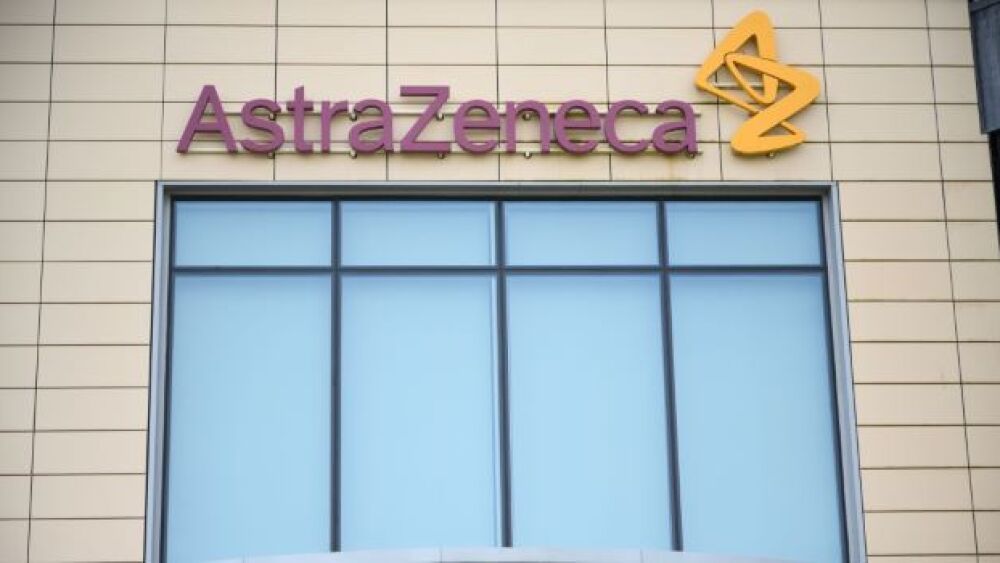Results of the Phase III trial showed that Evusheld protected against progression to severe COVID-19 or death in the early outpatient treatment of mild-to-moderate COVID-19.
Evusheld is reportedly providing good immune against severe COVID-19. (Leon Neal/Getty Images)
AstraZeneca announced Wednesday that the results of its Tackle Phase III trial of Evusheld (tixagevimab and cilgavimab, formerly AZD7442) for the early outpatient treatment of mild-to-moderate COVID-19 have been published in The Lancet Respiratory Medicine. Results of the trial showed that Evusheld protected against progression to severe COVID-19 or death - from any cause - compared to placebo.
“These results…add to the growing evidence supporting the use of Evusheld to help patients who most need additional protection against COVID-19,” Mene Pangalos, executive vice president, biopharmaceuticals R&D at AstraZeneca, said. “We are discussing the Tackle data with regulatory authorities and continue to progress submissions in both treatment and prophylaxis indications to help combat COVID-19 on all fronts.”
Evusheld was originally discovered by researchers at the Vanderbilt University Medical Center. It is a combination of two long-acting antibodies, tixagevimab and cilgavimab, both of which are human monoclonal antibodies derived from B-cells donated by patients after a SARS-CoV-2 infection. Vanderbilt licensed Evusheld to AstraZeneca in June 2020.
The randomized, double-blind, placebo-controlled Phase III trial involved participants who were not vaccinated against COVID-19, who had a documented laboratory-confirmed SARS-CoV-2 infection, had mild-to-moderate COVID-19, were symptomatic for seven days or less and were not hospitalized. The 903 participants were randomized (1:1) to receive either Evusheld or saline placebo, administered in two separate, sequential intramuscular (IM) injections. The endpoint of the study was the composite of either severe COVID-19 or death from any cause through day 29.
The results showed that a single 600mg dose of Evusheld significantly reduced the relative risk of progressing to severe COVID-19 or death (from any cause) by 50% through day 29 compared to placebo in non-hospitalized patients with mild-to-moderate COVID-19.
The benefits of Evusheld increased the earlier that patients received the injection. In patients who received the shot within three days of symptom onset, Evusheld reduced the risk of developing severe COVID-19 or death, again from any cause, by 88% compared to placebo. When participants received an Evusheld treatment within five days of symptom onset, the risk reduction was 67% compared to placebo.
As a secondary endpoint, the study also measured respiratory failure rates. Evusheld helped reduce the risk of respiratory failure by 72%.
Additionally, Evusheld was well tolerated, with adverse events happening more frequently in the placebo group than the treatment group, 36% and 29%, respectively.
Evusheld was approved by Health Canada for pre-exposure prophylaxis of COVID-19 for immune-compromised people in April, and previously received Emergency Use Authorization from the U.S. Food and Drug Administration for pre-exposure prevention of COVID-19 in December 2021.
“Despite the success of vaccines, many individuals such as older adults, individuals with co-morbidities and those who are immunocompromised, remain at risk for poor outcomes from severe COVID-19,” Hugh Montgomery, professor of intensive care medicine at University College London, UK and principal investigator of the Tackle trial said. “Additional options are needed to prevent disease progression and reduce the burden on healthcare systems, especially with the continued emergence of new variants. The Tackle results show that one intramuscular dose of Evusheld can prevent these individuals from progressing to severe COVID-19, with earlier treatment leading to even better results.”





